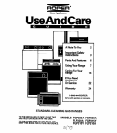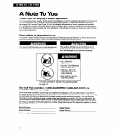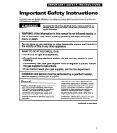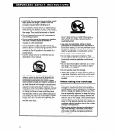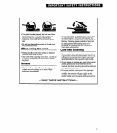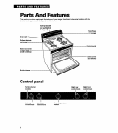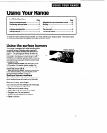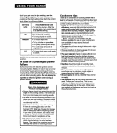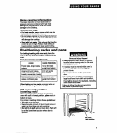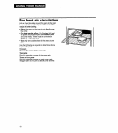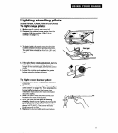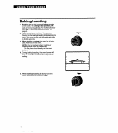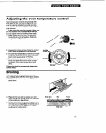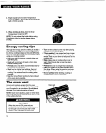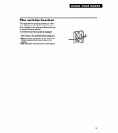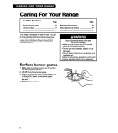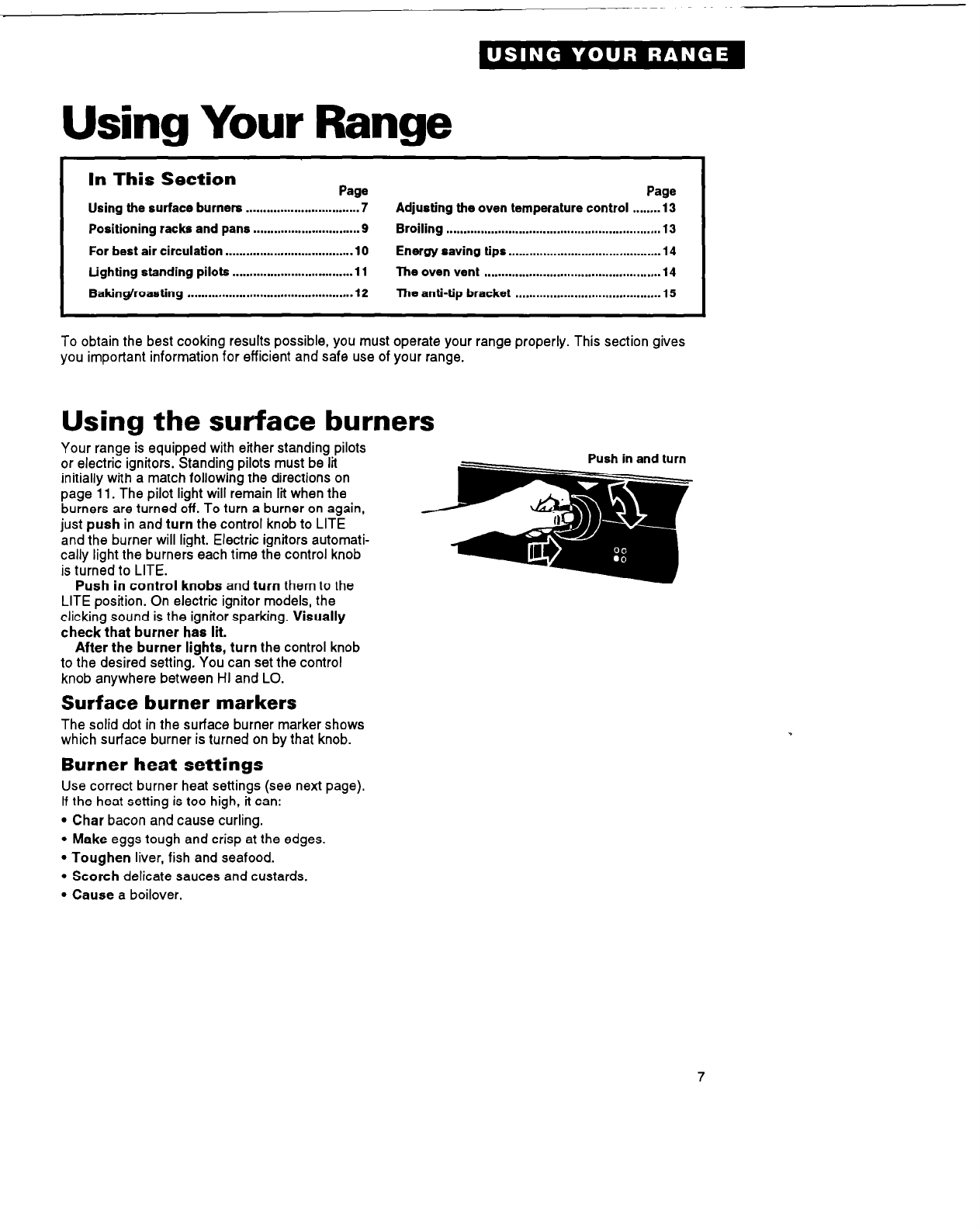
Using Your Range
I
In This Section
Page
Page
I
Using the surface burners ............................... .77
Positioning racks and pans
.............................. .9
For best air circulation ....................................
.10
Lighting standing pilots ...................................
11
Baking/roasting ................................................
12
Adjusting the oven temperature control
....... .;3
Broiling
..............................................................
13
Energy
oaving tips.. .........................................
.14
The oven vent ...................................................
14
The anti-tip bracket ..........................................
15
To obtain the best cooking results possible, you must operate your range properly. This section gives
you important information for efficient and safe use of your range.
Using the surface burners
Your range is equipped with either standing pilots
or electric ignitors. Standing pilots must be lit
initially with
a
match following the directions on
page 11. The pilot light will remain lit when the
burners are turned off. To turn
a
burner
on
again, -
just
push
in and
turn
the control knob to LITE
and the burner will light. Electric igniters automati-
cally light the burners each time the control knob
is turned to LITE.
Push in control knobs
and
turn
them to the
LITE position. On electric ignitor models, the
clicking sound is the ignitor sparking.
Visually
check that burner has lit.
After the burner lights, turn
the control knob
to the desired setting. You can set the control
knob anywhere between HI and LO.
Surface burner markers
The solid dot in the surface burner marker shows
which surface burner is turned on by that knob.
Burner heat settings
Use correct burner heat settings (see next page).
If the heat setting is too high, it can:
l
Char
bacon and cause curling.
l
Make
eggs tough and crisp at the edges.
9 Toughen
liver, fish and seafood.
l
Scorch
delicate sauces and custards.
l
Cause
a boilover.
7



